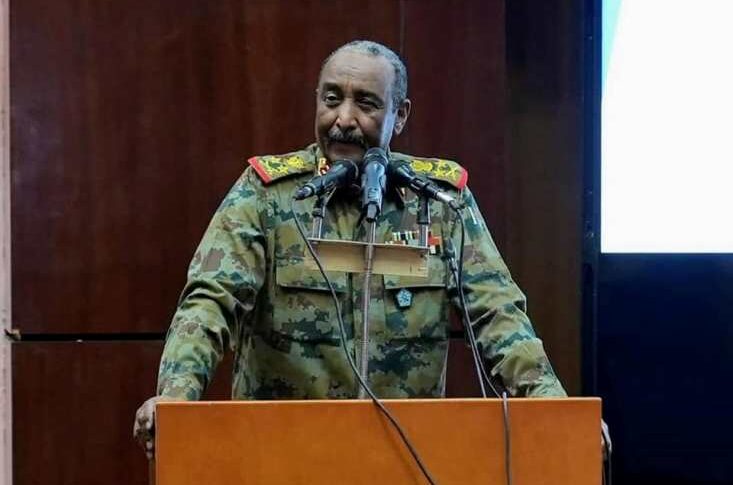Burhan reiterates adherence to tripartite dialogue process
June 15, 2022 (KHARTOUM) – Sudan’s Sovereign Council Head Abdel Fattah al-Burhan vowed Wednesday to not sign a bilateral agreement with any political forces and renewed his commitment to the tripartite-led process.
Al-Burhan made his statement in a briefing to the senior officers of the army and Rapid Support Forces (RSF) about the country’s current political developments.
According to a statement released by the Sudan Armed Forces, al Burhan affirmed the leadership’s firm stance on the security and stability issues of the country.
“He stressed the adherence of the army command to the comprehensive dialogue facilitated by the trilateral mechanism,” further reads the statement.
The head of the Sovereign Council added that this political process should not exclude anyone except the banned National Congress Party of former President Omer al-Bashir.
On June 9, the military component and the Forces for Freedom and Change (FFC) discussed the way forward to end the political crisis in a meeting brokered by the U.S. Assistant Secretary of State for African Affairs and the Saudi ambassador in Khartoum.
At the end of the meeting, the military component vowed to consider the demand of the political coalition to hand over power to a civilian government and requested a detailed roadmap.
The U.S and Saudi diplomats organised the meeting between the two rivals because the anti-coup coalition rejects to join a process altered by the participation of al-Bashir former allies who become now al-Burhan’s supporters; according to the FFC.
On Tuesday, the military-led Sovereign Council issued a statement saying the military component held a meeting with the Sudanese Revolutionary Front (SRF).
Lt Gen Ibrahim Jabir stated after the meeting that the two parties agreed that the “dialogue would be direct and in one stage”.
The SRF calls for a two-stage dialogue so that the political groups that were allied with the former regime participate in the second phase of the constitutional conference and the elections, while the first phase deals with the formation of the transitional authority including the prime minister and his cabinet.
(ST)

